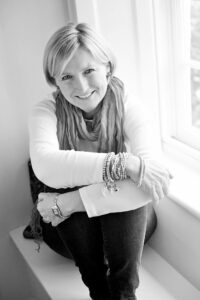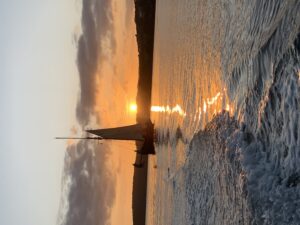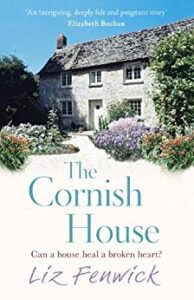 I first visited the Helford River in June 1989 and it has held my heart since then. It has become my muse, or a major part of it at least. It is difficult to write about this part of Cornwall without reference to the river. It pulls you in as much as the moon pulls the tide in. My first six novels are set on both the north and the south side of the river and this coming Spring my latest novel, The Secret Shore, returns there once more, this time set in 1942. The protagonist Merry Tremayne was born on the south side on a farm just above Frenchman’s Creek. From her early explorations of the many creeks that feed the river she draws her very first map. This is the start of her life journey that many woman of her time did not and could not travel.
I first visited the Helford River in June 1989 and it has held my heart since then. It has become my muse, or a major part of it at least. It is difficult to write about this part of Cornwall without reference to the river. It pulls you in as much as the moon pulls the tide in. My first six novels are set on both the north and the south side of the river and this coming Spring my latest novel, The Secret Shore, returns there once more, this time set in 1942. The protagonist Merry Tremayne was born on the south side on a farm just above Frenchman’s Creek. From her early explorations of the many creeks that feed the river she draws her very first map. This is the start of her life journey that many woman of her time did not and could not travel.
It was a challenge to look at the river through Merry’s eyes as I am so accustomed to viewing it through my own. But a setting only has true meaning when seen through the eyes of those viewing it. With each novel I have had to look at this familiar landscape and yet see it anew. In my debut, The Cornish House, it was fun to look at the area through the eyes of a stroppy London teenager. All Hannah could see was an empty landscape devoid of her former luxuries such as a decent latte and all she could smell was the air reeking of cow shit! Whereas Gabe in A Cornish Stranger experienced the area through the river’s sounds… the shrill cries of the wading birds at low tide and the soft wind in the Eucalyptus trees.
 Merry is an Oxford geographer who doesn’t simply see fields and hills, but their structure, composition and development. She only notices their true beauty when she thinks of her mother Elise, an artist. It is Elise’s view which causes Merry’s analytical mind to stop every so often, enabling her to pause and see the elegance beyond the facts and figures.
Merry is an Oxford geographer who doesn’t simply see fields and hills, but their structure, composition and development. She only notices their true beauty when she thinks of her mother Elise, an artist. It is Elise’s view which causes Merry’s analytical mind to stop every so often, enabling her to pause and see the elegance beyond the facts and figures.
Standing high on the plateau above the Helford, I watched the world change from the indistinct shapes of dawn to the defined ones of the day and I recalled my mother’s search for what she described as impossible light. It was the moment when the beauty was so sharp, so clear it hurt and broke into your mind and your soul giving everything new meaning. The only thing she had been able to compare it to was when she fell in love with my father. In that moment of understanding, her perception of everything changed.
 When writing about landscape it’s important for me to be in my character’s mind because what the character sees also reveals her point of view. Does she pick out the light or does she notice how rundown things are? Victoria in Under A Cornish Sky sees the landscape through history and folklore whereas when Merry is on the river she experiences it quite differently.
When writing about landscape it’s important for me to be in my character’s mind because what the character sees also reveals her point of view. Does she pick out the light or does she notice how rundown things are? Victoria in Under A Cornish Sky sees the landscape through history and folklore whereas when Merry is on the river she experiences it quite differently.
This old canoe had provided Oliver and I with endless trips on the Helford and around its creeks while we pretended that we were travelling on the Amazon, or the Nile, or the Yangtze. The bending oaks and hollies had become far more exotic and dangerous.
The joy of writing is that with each book and each character I can take a fresh look at the landscape around me and discover something totally new. I appreciate it all the more for the experience.
